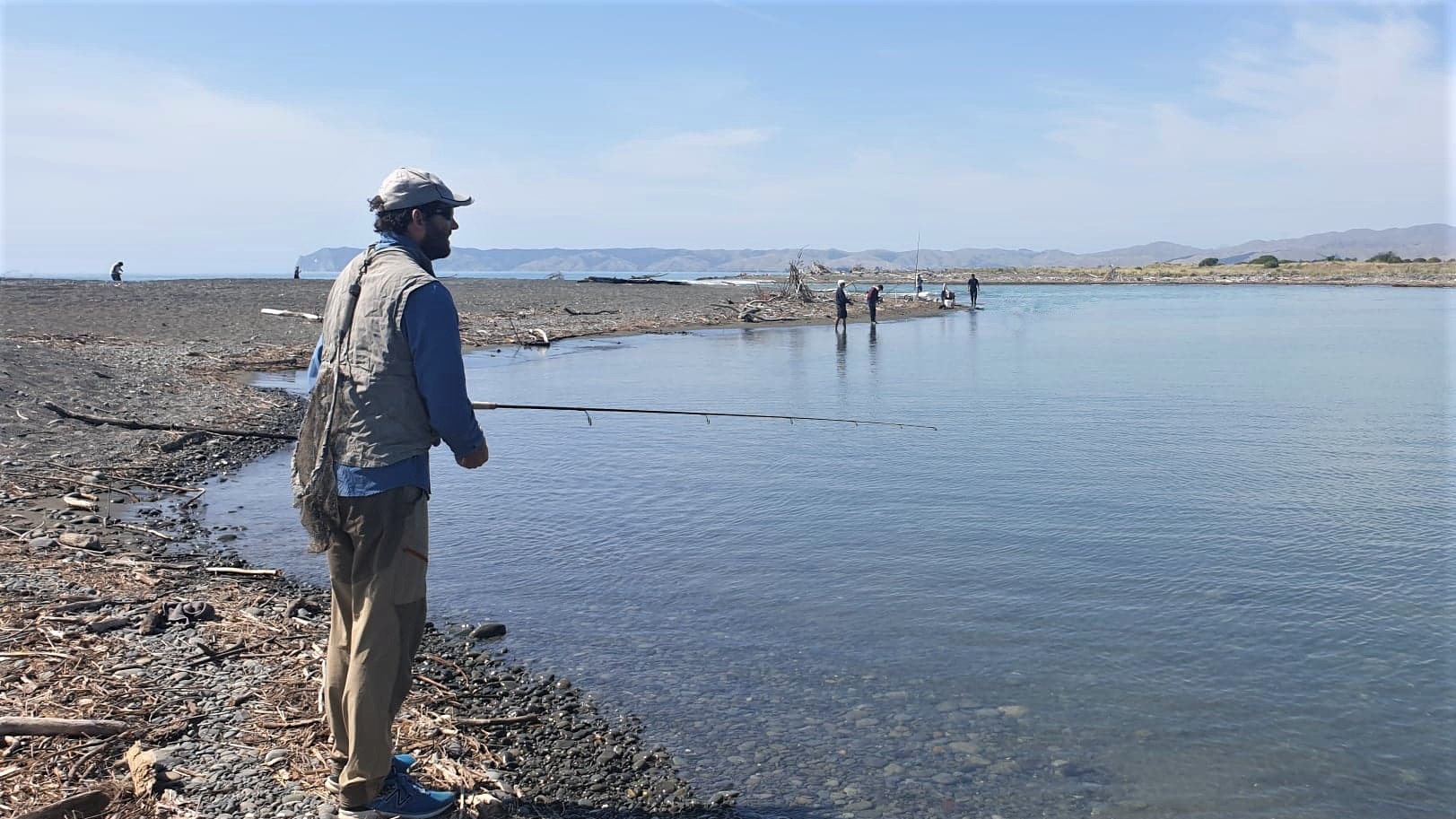Simple question, but a difficult answer. The number one variable which determines the number of trout caught is not the lure or gear used but the skill of the angler.
A novice with a spinning rod, will nearly always outfish a novice with a fly rod. The learning curve required to fish with spinning gear is much shorter than to successfully fly fish.
If self taught, it can become years to become proficient with all aspects of fly fishing.
In my experience, two anglers with a good amount of knowledge. Will be able to catch a comparable number of fish no matter the style they prefer to use.
My first seasons as a novice: spinning vs fly fishing
I suspect my personal experience will reflect that of many others. When I first started fishing for trout I used a trout rod. I fooled around a few times as a child, so caught nothing.
But, as I started university, I had more spare time and freedom so decided to give trout fishing a go. I had almost instant success with the spinning rod, and from memory landed 4 or 5 wild brown trout on my first outing. (There was no stock trout in my area, so I learned to trout fish by targeting wild brown trout and rainbows).
I spent the whole of my first season perfecting my skill with the spinning rod. I started casting and retrieving spoons, they were easy to cast but to be brutally honest, Spoons take skill to fish efficiently.
After a few outings, I started to favor inline spinners, the flashes of light and constant vibrations were more user friendly and I continued to land a steady stream, although often small fish.
By the middle of summer, I had opened my wallet and started to fish with more expensive Rapala and the quality of the trout I was catching started to increase. With the spinning rod, I was all but guaranteed a good trout every trip and landed close to 100 trout that season.
Learning the fly rod
At the beginning of the new season, I decided to give fly fishing a go. I fish beside an experienced fly angler and was impressed with the number and size of trout he was able to land while I struggled to get a follow on my spinning tackle.
So I was determined to learn how to fly fish. So I went online and purchased a rather nice rod, reel, fly line, and a pile of other accessories and headed to the river.
That was when I realized I could barely cast. Let’s just say the first few trips were a disaster, but eventually, I learned how to cast so I could get the fly out to where the trout were feeding.
Even then, casting is only half the challenge of fly fishing. Detecting a strike or take is a real skill in its own right. Just because an indicator moved sidewise, or get pulled under does not mean a fish took it. So, did I hone my skills, and learn how to successfully blind fish? No.
I decided to abandon blind fishing and just concentrate on sighted fish. Knowing when to strike after a trout rise to a dry was so much easier than detecting an underwater take. Also when fishing crystal clear water I could watch for the flash of a trout’s jaws to know when it took my fly.
I feel I should give streamer fishing a quick mention. Compared with nymphing and dry fly fishing, streamer fishing is easy and is probably the quickest way for a spinning fisherman to catch trout on a fly rod. But I did not take up fly fishing to substitute a lure made of metal, with one made of feathers.
During the second season, I only fished with fly tackle. I was determined to learn. Checking my fishing diary from that time I only managed to land 5 trout all season, although one was a beautiful 7lb Brown so that kinda made up for my lack of success elsewhere. The learning curve was steep.
20 Years Later. How do my catches compare today?
As a novice, I certainly caught a lot more trout spinning. But that was twenty years ago, and I now have many years of experience under my belt.
I can now cast, double haul, and even mend my fly line. I know how to read the currents and limit the influence of drag on my presentations. With a high degree of certainty, I know the difference between drag pulling my indicator down versus a fish.
So can I now catch more trout on the fly rod than spinning?
The answer is sometimes. Which style works best depends on so many variables, with one of the main ones being the clarity of the water.
When I can see the trout, such as in low and clear conditions, I catch more fly fishing than I do spinning. In such conditions catching even a single trout when spinning is difficult. It is a similar story when fishing still water, I have a lot more consistent success when fly fishing.
But, in bigger, faster rivers with a bit of color, it is an entirely different story. I can almost guarantee that I will land more trout when spinning. That is because spinning tackle covers more water faster and gets deeper faster. Plus spinning lures are much more attention grabbing. The trout know that they are there.
If all you care about is the absolute number of fish landing, then in some rivers, certain euro nymphing techniques can land an enormous number of usually small fish quickly.
Why do so many fly fishermen think fly fishing catches more trout?
I have a belief that a lot of fly fishermen (Purists in particular) gave up on spin fishing before they become truly proficient at it. Sure, they can cast out an inline spinner, and retrieve it but they lack the deeper knowledge required to master the spin rod.
I have watched some extremely skilled fly fishermen use spinning rods and it was like they were trapped in some alternative headspace. They seem to ignore all so much of their trout fishing knowledge and just start flicking out large chunks of metal and retrieving it in a fairly basic style. They did not know anything beyond the basics.
They were lacking the more advanced tactics and tricks that can take years to develop. I doubt they could drift a floating Rapala beneath overhanging vegetation, or suspend a lure so it hovers right in the feeding zone.
So most fly fishermen abandoned spinning gear very early on. So they fish at a novice or intermediate level at best and their results with the spinning rod reflect that.
I certainly was going down that path, before a chance encounter with a young fisherman who renewed my interest in spinning with jerkbaits and from there I accepted the challenge to also become proficient in the use of spoons and inline spinners.

